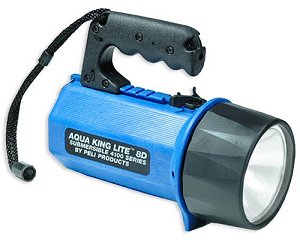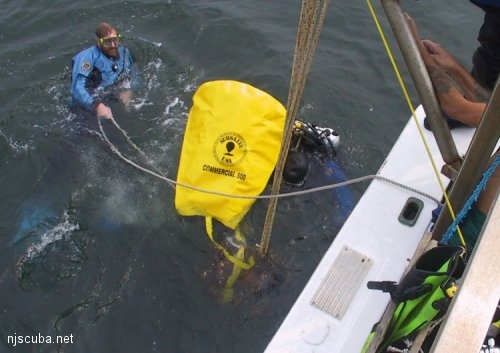Night Diving

Unlike ( or just like ) the Caribbean, diving in New Jersey is actually better at night in many ways. That's obviously not true if you are out to survey a shipwreck, but for inlet diving, there is no comparison. During the day, the day critters will be wide awake, and you won't be able to get near them, while the night critters will be down in their holes where you'll never see them.
At night, you can go right up to the sleeping day critters and pinch them, even the fish. Some even seem mesmerized by your light, which will also draw in many small invertebrates by itself. Meanwhile, the night critters will be out prowling around, including the king of all night critters, the lobster. And if you shut off the light and wave your hands vigorously, the bioluminescents will put on a show for you.
Actually, if you go down deep enough at sea, the difference between day and night becomes less pronounced as the surface light is filtered out by the somewhat-less-than-perfectly-clear Atlantic water. Basically, any time that the sun is not shining brightly high overhead is going to be nighttime on the bottom. For this reason, you should always carry a light, day or night.

